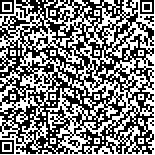| Quote
: |
李翔,蒋鹏飞,艾慧,彭俊,彭清华.基于聚类分析和因子分析探讨中医治疗视网膜色素变性的用药规律[J].湖南中医药大学学报英文版,2020,40(7):792-796.[Click to copy
] |
|
| |
|
|
| This paper
:Browser 3370times Download 1056times |
| 基于聚类分析和因子分析探讨中医治疗视网膜色素变性的用药规律 |
| 李翔,蒋鹏飞,艾慧,彭俊,彭清华 |
| (湖南中医药大学, 湖南 长沙 410208;湖南中医药大学第一附属医院, 湖南 长沙 410007) |
| 摘要: |
| 目的 基于聚类分析和因子分析探讨中医治疗视网膜色素变性(retinitis pigmentosa,RP)的临床用药规律。方法 收集1986年6月20日至2017年3月8日在湖南中医药大学第一附属医院就诊的RP住院患者的临床资料751例,采用Excel 2018对方案信息进行统计,用SPSS 21.0对纳入中药进行聚类及因子分析。结果 751例临床资料中共运用115味中药,其中高频中药34味,排名前3位的是枸杞子、熟地黄、山药;高频药物中以微寒性药、平性药物为主,药味主要是甘味药和苦味药;中药归经主要在肝、肾、脾;功效分类以补阴药、补气药、补血药、活血化瘀药为主。34味高频药物可聚为两类,第一类具有健脾益气、活血明目的功效;第二类具有滋补肝肾、活血明目的功效。因子分析得到5个公因子。结论 中药治疗RP以补脾益气、滋补肝肾为主,同时配合活血化瘀,体现了RP虚中夹瘀的本质特点。 |
| 关键词: 视网膜色素变性 聚类分析 因子分析 用药规律 |
| DOI:10.3969/j.issn.1674-070X.2020.07.004 |
| Received:April 01, 2020 |
| 基金项目:湖南省中医药科研计划重点课题(201901);湖南中医药大学中医学国内一流建设学科(湘教通〔2018〕469号);中医药防治眼耳鼻喉疾病湖南省重点实验室(kc1704005,2017TP1018);2019湖南省研究生创新项目(CX20190562)。 |
|
| Discussion on the Rule of Chinese Medicine Treatment of Retinitis Pigmentosa Based on Cluster Analysis |
| LI Xiang,JIANG Pengfei,AI Hui,PENG Jun,PENG Qinghua |
| (Hunan University of Chinese Medicine, Changsha, Hunan, 410208, China;The First Affiliated Hospital of Hunan University of Chinese Medicine, Changsha, Hunan 410007, China) |
| Abstract: |
| Objective To explore the clinical medication rules of traditional Chinese medicine treatment of retinitis pigmentosa (RP) based on cluster analysis and factor analysis. Methods The clinical data of 751 inpatients with RP treated in the First Affiliated Hospital of Hunan University of Chinese Medicine from June 20, 1986 to March 8, 2017 were collected. The program information was calculated using Excel 2018, and the included Chinese materia medica was clustered and factor analyzed using SPSS 21.0. Results A total of 115 Chinese materia medica were used in 751 cases of clinical data, of which 34 were high-frequency Chinese materia medica. The top three were Fructus Lycii, Radix Rehmanniae Preparata, and Rhizoma Dioscoreae; the high-frequency medicines were mainly slightly cold medicines and flat medicines. The flavor was mainly sweet and bitter; The channel tropism was mainly in the liver, kidney, spleen; the classification of efficacy was mainly tonifying Yin medicine, tonifying Qi medicine, tonifying blood medicine, activating blood circulation and resolving stasis medicine. The 34 types of Chinese materia medica with high-frequency can be grouped into two categories. The first category had the effects of strengthening the spleen and nourishing Qi, and promoting blood circulation for improving eyesight; the second category had the effects of nourishing the liver and kidney, and promoting blood circulation for improving eyesight. Factor analysis yielded 5 common factors. Conclusion Chinese materia medica treatment of RP is mainly to replenish the spleen and nourish Qi, nourish the liver and kidney, and at the same time combined with activating blood circulation and resolving stasis, which reflects the essential characteristics of stasis in deficiency in RP. |
| Key words: retinitis pigmentosa cluster analysis factor analysis medication rule |
|

二维码(扫一下试试看!) |
|
|
|
|


